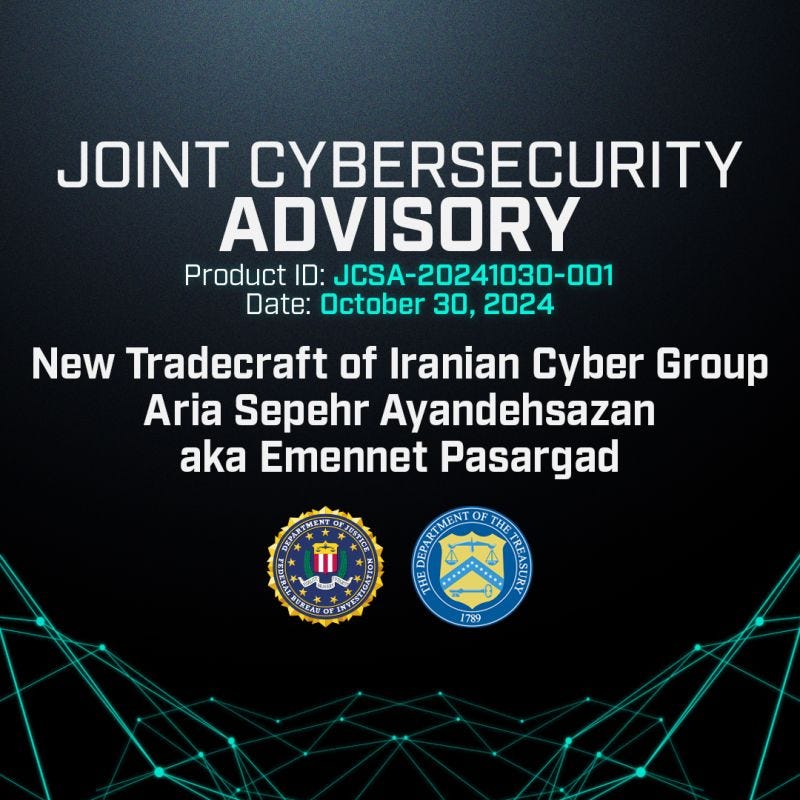A Deep Dive into Iranian Cyber Group ASA's New Tactics: What You Need to Know
In the ever-shifting world of cyber threats, a familiar player has taken the spotlight: Aria Sepehr Ayandehsazan (ASA), also known as Emennet Pasargad and Cotton Sandstorm.
With recent advisories from the FBI, U.S. Department of Treasury, and Israel’s National Cyber Directorate, ASA’s evolving tactics demonstrate an advanced approach to cyber-enabled influence campaigns. Here’s a closer look at how ASA operates and what makes them so formidable.
Who Is ASA?
Operating under various guises, ASA is an Iranian-backed group known for hack-and-leak operations that go beyond data theft. Their cyber campaigns aim to create uncertainty, influence public sentiment, and undermine the confidence of target organizations. Similar to past influence attempts, ASA’s latest focus is on election-related websites and major media outlets, suggesting that they are preparing to ramp up influence efforts as critical elections draw near.
What’s New in ASA’s Playbook?
AI-Powered Disinformation
ASA has embraced generative AI in a big way. Their recent campaigns leverage AI-generated personas, synthetic voices, and modified images, ramping up the psychological impact of their messaging. The group’s recent “For-Humanity” operation used an AI-generated news anchor to inject disinformation into IPTV services during key moments in the Israel-HAMAS conflict.IP Camera Exploitation
Another recent tactic involves harvesting live feeds from IP cameras, primarily in Israel but also from Gaza and Iran. ASA reportedly gathered real-time footage from these cameras, allowing them to exploit visual content in targeted psychological campaigns.Self-Made Hosting Resellers
ASA has taken infrastructure obfuscation to a new level by setting up its own fake hosting resellers, such as "Server-Speed" and "VPS-Agent," which provide operational servers for cyber activities under a cover of legitimacy. This tactic also enables ASA to support affiliates, including groups tied to Lebanon, in their influence campaigns.Targeted Messaging to Israeli Families
Since the October 7, 2023, HAMAS attack, ASA has employed SMS campaigns aimed at Israeli hostage families, intended to heighten emotional distress. Through cover personas, ASA posed as intermediaries from groups like Al-Qassam, delivering trauma-inducing messages directly to the families involved.
Why This Matters Now
ASA’s advancements highlight an emerging trend: the use of artificial intelligence not just as a technological asset but as a strategic tool in cyber warfare. These methods reinforce ASA's psychological impact, allowing them to bypass traditional detection and influence audiences in real time.
As we watch ASA’s playbook evolve, staying informed on new tactics is crucial for both organizations and individuals alike. With growing geopolitical tensions, ASA’s next move could have a ripple effect across borders, underscoring the importance of cybersecurity awareness.
The Joint Advisory can be found here: https://www.ic3.gov/CSA/2024/241030.pdf










